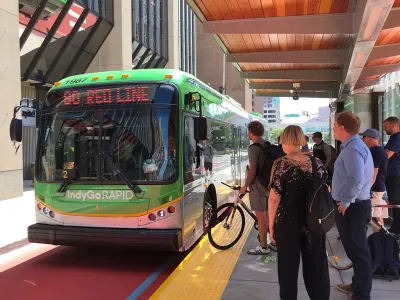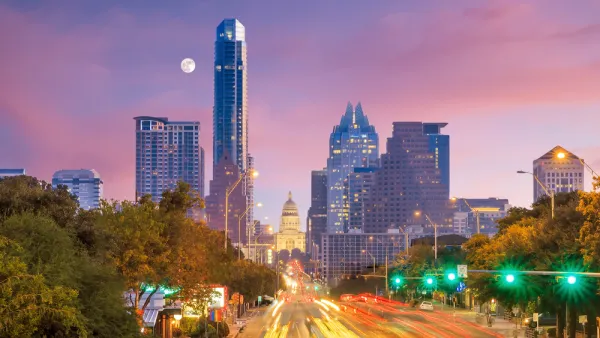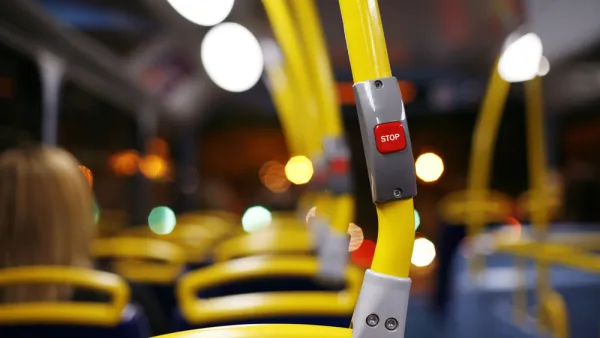An organization successfully balanced the tension between expanding rail line service and improving bus service, and ensuring race was at the forefront of the conversation.

In 2016, an Indianapolis-based faith organization launched a successful campaign to bring more funding to the mass transit system in Marion County. Shelterforce’s Miriam Axel-Lute talks with Nicole Barnes of Faith in Indiana about why the organization focused on transit improvements, how they balanced the tension between expanding rail line service and improving bus service, and how race had to be at the forefront.
Miriam Axel-Lute: Why did IndyCAN (now Faith in Indiana) pick transit improvements as a goal?
Nicole Barnes: Transit was something that we believe was imperative for the work that we do. It aligns with our mission, which is to empower and give diverse communities the opportunity to work together. We want to serve as a catalyst for the marginalized and for faith communities so they can act together for racial and economic equity. Transit absolutely fit in racial and economic equity. When we started digging into the research, we saw how lack of transportation contributed greatly to poverty.
We had this opportunity to get transit on the ballot in 2016. Our leaders and our people [agreed that] this is something that will not just improve the city economically, but will also improve our communities from a racial standpoint [and] from an economic development standpoint. That campaign beautifully embodied our mission, which is to get people from all sides to work together toward something good.
We called this campaign “Ticket to Opportunity.” Even in our choice of what we called it, it [was clear it] wasn’t just about transit, but transit as an opportunity for people to get out of the circumstances that they were in. ...
FULL STORY: The Ticket to Opportunity

Analysis: Cybertruck Fatality Rate Far Exceeds That of Ford Pinto
The Tesla Cybertruck was recalled seven times last year.

National Parks Layoffs Will Cause Communities to Lose Billions
Thousands of essential park workers were laid off this week, just before the busy spring break season.

Retro-silient?: America’s First “Eco-burb,” The Woodlands Turns 50
A master-planned community north of Houston offers lessons on green infrastructure and resilient design, but falls short of its founder’s lofty affordability and walkability goals.

Test News Post 1
This is a summary

Analysis: Cybertruck Fatality Rate Far Exceeds That of Ford Pinto
The Tesla Cybertruck was recalled seven times last year.

Test News Headline 46
Test for the image on the front page.
Urban Design for Planners 1: Software Tools
This six-course series explores essential urban design concepts using open source software and equips planners with the tools they need to participate fully in the urban design process.
Planning for Universal Design
Learn the tools for implementing Universal Design in planning regulations.
EMC Planning Group, Inc.
Planetizen
Planetizen
Mpact (formerly Rail~Volution)
Great Falls Development Authority, Inc.
HUDs Office of Policy Development and Research
NYU Wagner Graduate School of Public Service



























